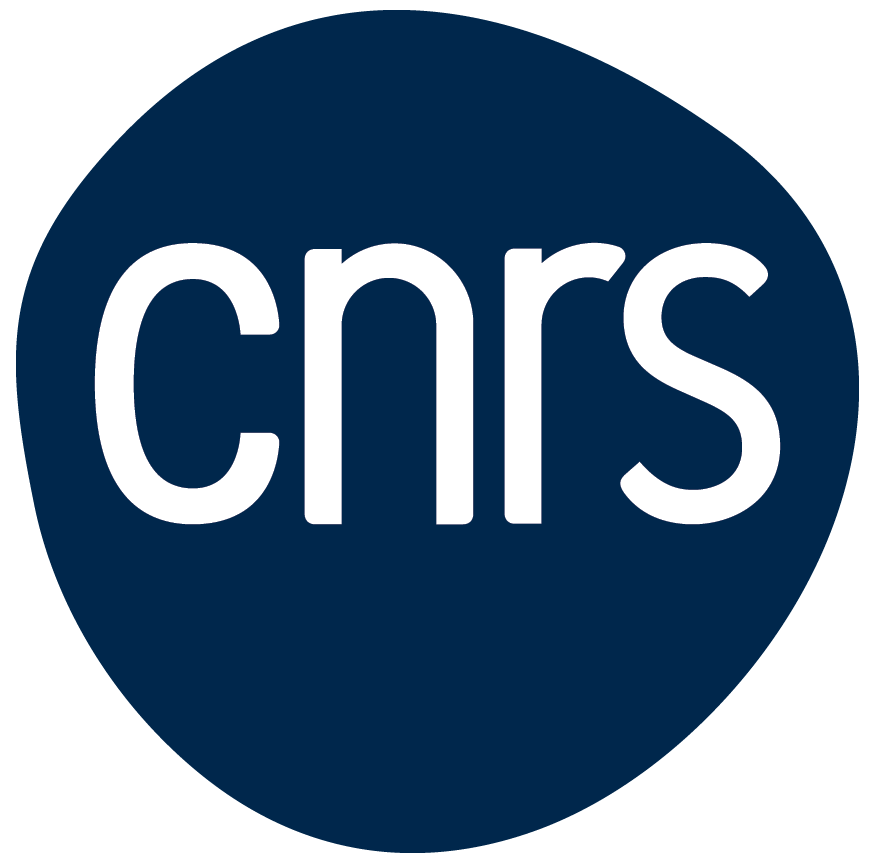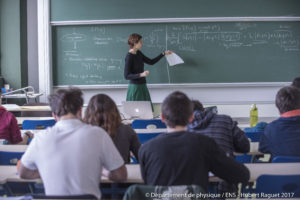Andrea De Luca joined the Institute in the fall of 2012 after obtaining his PhD at Sissa. His research activity was focused on the out-of equilibrium properties of quantum systems with many degrees of freedom. He was interested in the dynamical properties and in the characterization of long-time dynamics. Recent advances in the cold atoms community have made it possible to study the quantum evolution of a specific microscopic hamiltonian. It is therefore possible to experimentally investigate fundamental questions as for instance the mechanism beyond thermalization in quantum mechanics and the lack thereof. It became a natural question to understand this system from the theoretical point of view. One of the problems he studied was the stationary state in a 1d model prepared as follows : at the beginning the system is divided into two halves thermalized at different temperatures. Then the system is connected such that the quantum dynamics is homogeneous.
In general, one could expect the Fourier law to hold, thus producing a vanishing thermal current in the thermodynamic limit. However, for low-temperature critical systems the typical transport is ballistic. In these cases, the stationary current can be computed exactly employing conformal field theory methods.
A. De Luca extended these results to finite temperatures in interacting systems [17].
Another part of A. De Luca’s research was devoted to disordered systems in the presence of interactions.
Particularly interesting is the theoretical possibility of a phase where the presence of disorder and quantum interference prevents the system to thermalize. This would not only mean that the transport is forbidden as in the usual Anderson localization but more fundamentally, it is in contrast with the standard assumptions behind thermodynamics according to which a small amount of interaction is sufficient to grant ergodic dynamics in the phase space. A. De Luca has studied this phenomenon in the simplified context of random regular graphs where he and his collaborators suggested the possible presence of a non-ergodic phase, characterized by extended multifractality [18, 19]. Further studies concerned one-dimensional fermionic models [20] and solid-on solid critical points [21]
Andrea De Luca collaborated with several physicists from the ENS (Denis Bernard, Jacopo Viti, Pierre Le Doussal), from the Paris area (Alberto Rosso, LPTMS), but also had international collaborations (Antonello Scardicchio, ICTP and Boris Altshuler, Columbia University).
After finishing his Philippe Meyer position at the end of the summer 2014, he moved to the LPTMS in Paris-Orsay.
MENUMENU
- Laboratoire
-
-
LABORATOIRE
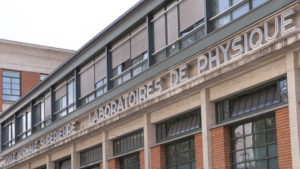
-
-
-
- Recherche
-
-
ASTROPHYSIQUE, COSMOLOGIE ET GRAVITATION
- Présentation
- Liste Equipes Axe Astrophysique, Cosmolgie et Gravitation
-
INTERACTIONS FONDAMENTALES
- Présentation
- Liste Equipe Axe Interactions Fondamentales
-
PHYSIQUE STATISTIQUE
- Présentation
- Liste Equipe Axe Physique Statistique
-
-
- Formation
- Diffusion des connaissances
-
-
DIFFUSION DES CONNAISSANCES
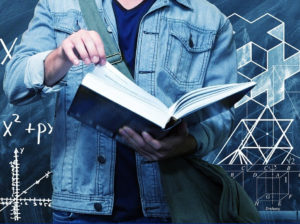
-
-
- Institut Philippe Meyer (IPM)
- Intranet
Sélectionner une page

